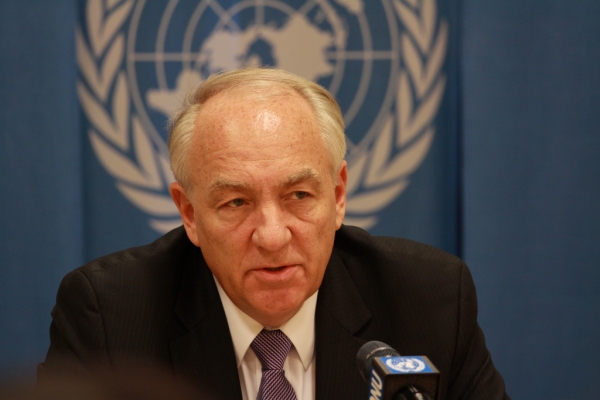Former United States Ambassador-at-Large for War Crimes issues Ambassador Stephen Rapp said that recent attacks on the Muslim community were a reflection on the country's situation of impunity.
“When we look at the events over the last week, the attacks on Muslims [in Sri Lanka] by extremist Buddhist elements [...], we certainly see the real dangers of a situation of impunity. The failure to prosecute effectively crimes of mass atrocity leads to a contempt for these norms; a perception by those who take up arms and commit heinous acts against their fellow human beings that they can get away with it," he said, addressing a side event held at the UN Human Rights Council in Geneva.
The event was titled: "How the International System has Failed to Provide Accountability for Mass Atrocities: Ongoing illegal detention, torture and sexual violence against Tamils in Sri Lanka"
"It’s been my observation that in the world where governments courageously prosecute people who are political alleys – the armed services and security forces – one can substantially curtail these violations. But if you don’t act, the impunity risks creating further and further violence, which is answered similarly on the others side, into a situation into which no human being is safe. And that’s the last thing we want to see in Sri Lanka," Rapp said.
Rapp joined, Monitoring and Accountability Panel (MAP)Secretary Richard J Rogers, as a panellists at a side event to the Human Rights Council’s 37th Regular Session. Rogers and Ambassador Rapp spoke to the Sri Lankan Government’s lack of progress on transitional justice and the risks flowing from a failure to prosecute.
According to, Richard J Rogers, “The Sri Lanka situation clearly shows the risks of impunity, namely, a continuation of mass crimes. The fact that the on-going torture and sexual violence against Tamils is still so systemic and organised, leaves the impression that it’s an integral part of the Sri Lankan Government’s counter-insurgency strategy.”









